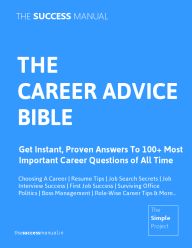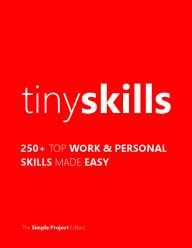On June 22, 2010 By bookguide Topic: Greatbooks, Book summary
Don Tapscott and Anthony Williams wrote the definitive book on the principles that made Wikipedia what is today and the lessons as applied to business in general. The big idea: How to get a whole lot of strangers to build something useful for other strangers.
Highlights:
Firms can no longer depend only on internal capabilities or a handful of business partners to meet external needs.
Companies that make their boundaries porous to external ideas and human capital outperform companies that rely solely on their internal resources.
When companies are open, customers respond by giving their trust.
A new kind of business is emerging: one that
- opens its doors to the world
- co-innovates with everyone, especially customers
- shares resources that were previously closely guarded
- harnesses the power of mass collaboration
- behaves not as a multinational, but as a truly global firm
Loose, voluntary communities of producers can self-organize to do just about anything:
- design goods or services
- create knowledge
- assemble physical things
- produce dynamic shared experiences
but don't overlook the fact that these communities operate according to well-defined norms, and have internal processes to guide the group's activities.
Debates remain on the public archive.
Sharing is about lowering costs, building community, accelerating discovery.
The growth of increasingly valuable online resources as a natural by-product of their use by self-regarding individuals. (No altrusitic sharing motives need be present, especially since sharing is the default in most online communities, including Flickr, Napster, and YouTube.)
Sharing makes sense if the conditions are right:
- Your proprietary offering is failing and open sourcing it could inject the creativity and manpower required to make it succeed in the marketplace. (Sun OpenSparc.)
- Opening up IP in one area could boost demand for complementary product and services offerings. (IBM WebSphere.)
- Advantages of pooling competencies and reducing R&D exceed benefits of having exclusive rights to the knowledge produced. (SNP Consortium.)
- You're seeking a uniquely qualified mind so you enlarge the pool of talent addressing a particular problem. (Goldcorp)
- An open platform will encourage innovation, efficiency, and interoperability with ecosystem partners. (Amazon)
- Sharing is necessary to establish credentials and to develop relationships with other contributors in the community. (SpikeSource)
- Preempting the property rights of competitors shifts the locus of competition or enhances your freedom of action. (Merck's Gene index.)
- Openness removes unnecessary friction in collaborative projects and paves the way for participants to focus on the science (Intel's industry-university partnership)
Imagine a digital age co-op, with peer-rating systems that dynamically apportion shares to contributors based on the community's assessment of the value added by individual contributors. Annual profits from sales and services could be distributed across the community of contributors.
Wikinomics design principles:
Throw away some of your detailed plans.
Leaders manage chaos the way a kindergarten teacher manages her students.
Planning must allow for a high degree of learning on your part. The great examples have adopted their strategies as they learned what worked and what did not work for the overall community.
- Taking cues from your lead users
- Building critical mass
- Supplying an infrastructure for collaboration
- Take your time to get the structures and governance right
- Make sure all participants can harvest some value. (Some do it for fun, philosophical reasons, for profit, fulfill unmet needs, reputation, career prospects.)
- Abide by community norms
- Let the process evolve
- Hone your collaborative mind
[From the Great Books Series. Also see The Success Manual - Encyclopedia of Advice, which contains summaries of 100+ Most useful books.]

